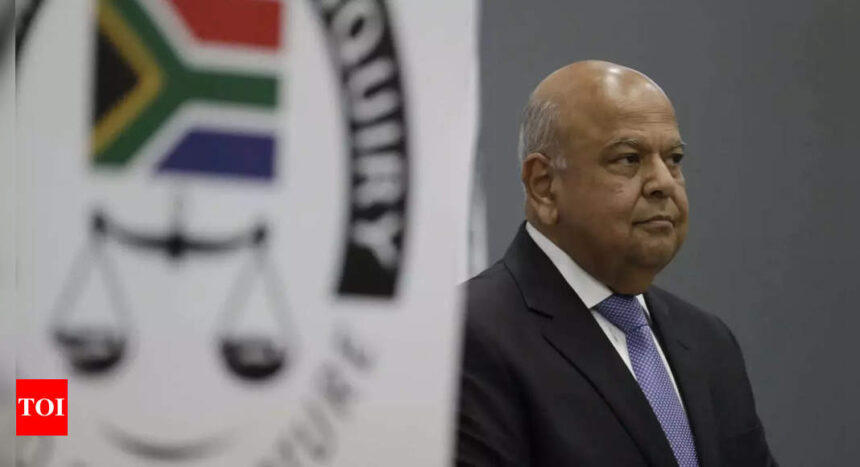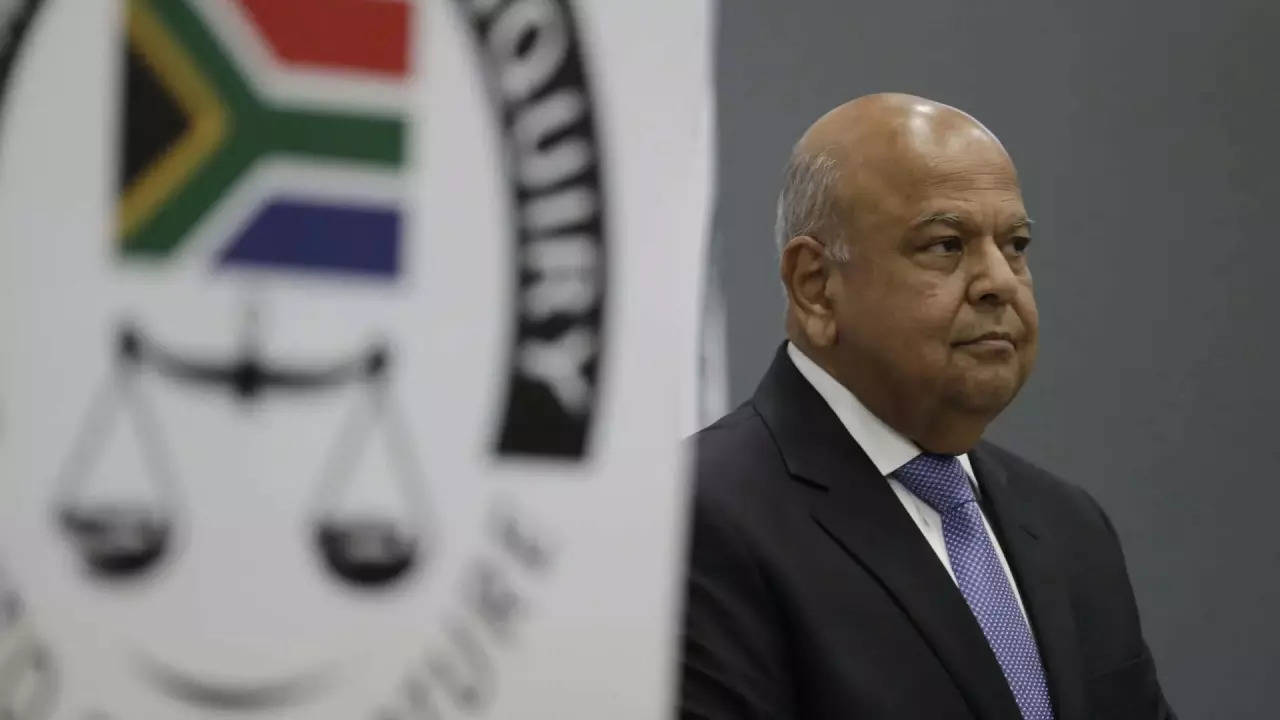Indian-origin former finance minister of South Africa, Pravin Gordhan, passed away at the age of 75, his family announced.
Gordhan had been a prominent figure in South African politics since the country’s transition to democracy in 1994, holding various key positions in the government until his retirement in May.
According to the family’s statement, the veteran cabinet minister succumbed to cancer early Friday morning in the hospital, “surrounded by his family, closest friends, and lifelong comrades in the liberation struggle.” He is survived by his wife, Vanitha, and their daughters, Anisha and Priyesha.
Expressing his grief, President Cyril Ramaphosa said he was deeply saddened by the passing of lifelong activist Pravin Gordhan, who died at the age of 75 after a period of illness.
President Ramaphosa stated: “We have lost an outstanding leader whose unassuming persona belied the depth of intellect, integrity, and energy with which he undertook his activism, his duty as a parliamentarian, and his roles as a member of Cabinet,” according to the letter released by the presidency.
“Pravin Gordhan’s personal sacrifices, his endeavours, and achievements across various sectors of our society endowed him with the insights, empathy, and resilience that fueled his service to the nation,” he added.
Early life
Soft-spoken and measured in public but tough behind the scenes, Gordhan was born in the eastern port city of Durban in 1949.
He graduated from the University of Durban-Westville with a Bachelor of Pharmacy degree, leading him to work at King Edward VIII Hospital in Durban from 1974 to 1981.
Political career
While at university, he joined the anti-apartheid Natal Indian Congress and became involved with the African National Congress (ANC) and the South African Communist Party.
Throughout the 1980s, under the ANC, Gordhan was repeatedly arrested for his political activities challenging white-minority rule.
As one of the negotiators for South Africa’s peaceful transition to a constitutional democracy, he became a member of parliament in 1994 following Nelson Mandela’s historic election as the country’s first democratically elected president, AFP reported.
From 1999 to 2009, Gordhan served as the head of the South African Revenue Service, during which time he was credited with transforming the organization into a world-class tax and customs service.
Role in South Africa’s government
From 2018 to 2024, Gordhan served as the minister of public enterprises, overseeing state-owned enterprises. He also held the position of finance minister for two terms, from 2009 to 2014 and again from 2015 to 2017.
Throughout his career, Gordhan was known for his outspoken criticism of corruption within the government and state-owned enterprises. He was among the ministers who openly criticized the leadership of former President Jacob Zuma, even while serving in his Cabinet.
His last cabinet portfolio saw him in charge of public enterprises, where he was appointed by President Ramaphosa to root out graft and waste at state-owned businesses like the troubled electricity monopoly Eskom and embattled South African Airways.
To many, he failed to do so, leaving several debt-ridden state-owned enterprises in a calamitous state upon his retirement.
Gordhan had been a prominent figure in South African politics since the country’s transition to democracy in 1994, holding various key positions in the government until his retirement in May.
According to the family’s statement, the veteran cabinet minister succumbed to cancer early Friday morning in the hospital, “surrounded by his family, closest friends, and lifelong comrades in the liberation struggle.” He is survived by his wife, Vanitha, and their daughters, Anisha and Priyesha.
Expressing his grief, President Cyril Ramaphosa said he was deeply saddened by the passing of lifelong activist Pravin Gordhan, who died at the age of 75 after a period of illness.
President Ramaphosa stated: “We have lost an outstanding leader whose unassuming persona belied the depth of intellect, integrity, and energy with which he undertook his activism, his duty as a parliamentarian, and his roles as a member of Cabinet,” according to the letter released by the presidency.
“Pravin Gordhan’s personal sacrifices, his endeavours, and achievements across various sectors of our society endowed him with the insights, empathy, and resilience that fueled his service to the nation,” he added.
Early life
Soft-spoken and measured in public but tough behind the scenes, Gordhan was born in the eastern port city of Durban in 1949.
He graduated from the University of Durban-Westville with a Bachelor of Pharmacy degree, leading him to work at King Edward VIII Hospital in Durban from 1974 to 1981.
Political career
While at university, he joined the anti-apartheid Natal Indian Congress and became involved with the African National Congress (ANC) and the South African Communist Party.
Throughout the 1980s, under the ANC, Gordhan was repeatedly arrested for his political activities challenging white-minority rule.
As one of the negotiators for South Africa’s peaceful transition to a constitutional democracy, he became a member of parliament in 1994 following Nelson Mandela’s historic election as the country’s first democratically elected president, AFP reported.
From 1999 to 2009, Gordhan served as the head of the South African Revenue Service, during which time he was credited with transforming the organization into a world-class tax and customs service.
Role in South Africa’s government
From 2018 to 2024, Gordhan served as the minister of public enterprises, overseeing state-owned enterprises. He also held the position of finance minister for two terms, from 2009 to 2014 and again from 2015 to 2017.
Throughout his career, Gordhan was known for his outspoken criticism of corruption within the government and state-owned enterprises. He was among the ministers who openly criticized the leadership of former President Jacob Zuma, even while serving in his Cabinet.
His last cabinet portfolio saw him in charge of public enterprises, where he was appointed by President Ramaphosa to root out graft and waste at state-owned businesses like the troubled electricity monopoly Eskom and embattled South African Airways.
To many, he failed to do so, leaving several debt-ridden state-owned enterprises in a calamitous state upon his retirement.
Source : Times of India









